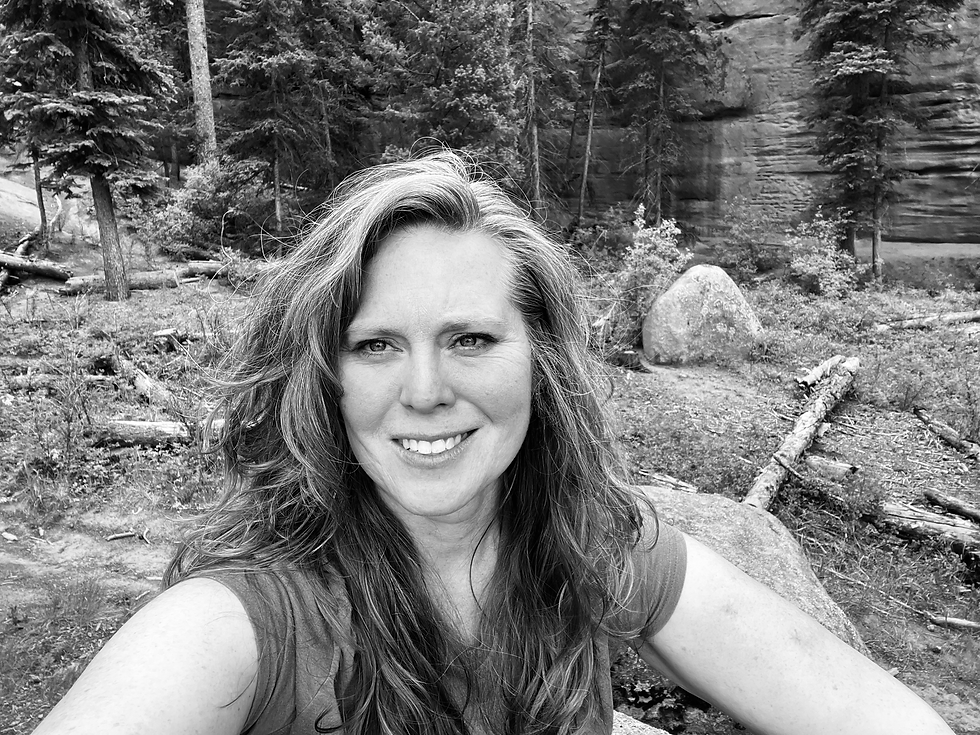Healing the Father Line
- mrglhic
- May 28
- 3 min read
A Father’s Day Reflection on Boys, Emotions, and the Return to Relationship

I work with a lot of boys.
Not because boys are more broken, but because they often can't hide their pain. While many girls learn to hold it all inside, boys tend to externalize what their nervous systems can’t contain.
And when that pain erupts as aggression, defiance, or collapse, they get noticed. They get sent to therapy.
But what I see—day after day—isn’t brokenness.
I see boys who are asking for safety.
Boys who are trying to metabolize generations of silence and disconnection.
Boys who are begging, through their behavior, for something their fathers never learned how to give—and their grandfathers before them didn’t even know they needed.
And what gives me hope—what genuinely moves me—is watching mothers step into that space.
I see moms who are learning to listen beneath the meltdown.
Who breathe instead of blame.
Who are breaking cycles that told them to control instead of connect.
They’re raising boys who are learning it’s safe to cry, safe to feel, safe to stay in relationship.
They are reshaping what masculinity can mean.
And this isn’t small.
This isn’t “gentle parenting” as a trend.
This is spiritual labor. It’s nervous system work. It’s soul retrieval.
It’s generational healing in real time.
And something else begins to shift, too: the fathers.
Even the ones who resist it—who bristle, who shut down, who struggle to understand this different way—are being changed by it.
Because support doesn’t always look like emotional fluency.
Sometimes it looks like not tearing down the mother who is choosing a new path.
Sometimes it looks like driving a child to therapy.
Sometimes it looks like quietly defending that choice when extended family doesn’t get it.
Sometimes it’s financial, practical, logistical.
But it’s happening.
I see fathers standing beside their partners—not always knowing how to do it, but knowing it matters. And that is brave.
Because it takes real courage to question everything you were taught about what it means to be a man.
To sit in the discomfort of not having the answers.
To support healing you never received yourself.
That bravery makes room for something new to emerge—not just for the child, but for the whole family.
And beyond even family systems, I believe this is the work that begins to heal the split between the masculine and the feminine, both within and without.
Because every one of us carries both.
And so much pain—relational, systemic, ancestral—comes from the places we’ve disowned one half of ourselves.The masculine without the feminine becomes brittle and domineering.
The feminine without the masculine becomes overwhelmed and unheld.
But when we begin to relate—truly relate—to both sides of ourselves… something shifts.
When we stop projecting our unmet needs onto our partners… something softens.
When we can hold strength and tenderness together… something heals.
This healing begins in the nervous system.
In the breath between a child’s scream and a caregiver’s response.In the moment a parent chooses to stay connected instead of shut down.
That’s what’s happening right now—in therapy rooms, in living rooms, in late-night conversations between exhausted parents.
That’s what we’re doing together.
That’s what’s changing the world.
And I need to say this—because it’s personal.
I’ve felt what happens when this healing doesn’t happen.
When the mother turns her back.
When she can’t hold space.
When she beats her child.
When shame takes the place of safety.
I’ve loved the men those boys become.
The ones who were never allowed to feel.
The ones who had to disconnect to survive.
The ones who controlled or collapsed or manipulated because no one taught them how to stay present in pain.
That’s why this work matters so much to me.
Because I know the cost when it’s not done.
And I know the hope when it is.
I see the moms who are staying.
Who are breathing through it.
Who are learning to hold the storm, not shut it down.
And I see the boys who are learning how to feel—and stay—and become the kind of men this world so desperately needs.
This work is hard as hell.
But it’s what makes real love possible.
And I believe in every breath of it.


